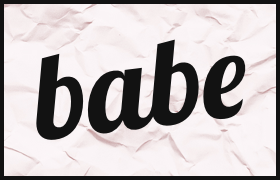
A girl’s eating disorder is not ‘cute’
Being thin isn’t the same as being ‘tiny’
Eating disorders are psychological disorders that affect 30 million people in the United States alone. According to the National Eating Disorder Association, two-thirds of those impacted are women. As a woman in the demographic most affected by eating disorders with family and friends who have struggled with them, I feel it’s important to address how we discuss body image.
Today’s overly-social world creates an environment in which harmful attitudes, stereotypes, and images can rapidly be shared. Eating disorders are increasingly affecting younger people. A recent study of children between nine and 14-years-old showed that over 50 percent of girls wanted a thinner shape, although many were already underweight. College students agree, with one female sophomore saying, “there’s an unfair standard that women have to be ridiculously skinny to be considered beautiful.”
What’s even more frightening than these social pressures spreading to younger people are the social media outlets pushing them. The most dangerous of which stem from the pro-eating disorder, or “pro-ana,” culture. This disturbing culture is found predominantly on the internet and Instagram.
According to Newsweek and The National Eating Disorder Information Centre, these sites and posts, “depict anorexia as an act of extraordinary willpower” and tailor their commentary to young females. The pro-ana culture markets eating disorders “as a lifestyle choice” by providing support and suggestions, with no mention of the disease being a real, lethal sickness.
I took to the web and Instagram to find out how cringeworthy the pro-eating disorder movement was myself. One blog I discovered, Thin Intentions, offered tips like, “ice and gum are good food substitutes, celery works too if you’re really hungry,” and, “wear a rubber band around your wrist and snap it when you want to eat, food=pain.”
A Tumblr, entitled See My Skeleton, categorizes posts into those with protruding collar bones, hip bones, spines, or shoulder blades and thigh gaps. The author writes that she posts these pictures because she finds them, “beautiful, and not because [she’s] pro-ana.”
I was thoroughly distressed by my findings, and that’s just the beginning. The UK Council for Child Internet Safety estimated that there were between 400 and 500 websites dedicated to pro-eating disorder culture in addition to thousands of personal blogs in 2o13. Without a doubt that number has grown.
In April 2012, Wired reported that Instagram banned hashtags for anorexia, proana, thinspiration, thighgap, and imugly. After the ban, users searching for those hashtags were told “no posts can be found.” Since then the ban was supposedly changed to “a message before users see flagged content,” but after personally searching it seems that some hashtags are banned while others are flagged.
So how does pro-eating disorder culture relate to the content we post? Social media uploads of our most recent vacation or new outfit may seem uninvolved with pro-ana, but the responses they get are beginning to mimic the language of this deadly culture. The millennial generation has suffered widespread social pressures about their body image, resulting in a need for people to show their social network flattering images of themselves in hopes of receiving encouraging feedback.
Young women are increasingly drawn to photo editing and airbrushing applications, allowing them to show others their “perfect” appearance while they try to achieve it. Brielle Farruggio (BU ’17) said: “It’s sad that when you go on Instagram comments are so focused on superficial things like how skinny someone looks. It makes girls self conscious and less likely to post a photo they like just because they don’t think they look a certain way in it.”
I can’t scroll through my Facebook and Instagram feeds without seeing photos of women I know with comments like “tiny” and “mini” about their thin bodies. These words convey a message that equate thin and cute, and that is the basis of pro-eating disorder culture.
I’m not saying we shouldn’t post photographs of ourselves when we’re feeling confident or to stop flattering our friends. There is nothing wrong with losing weight or being thin, as long as you are always healthy. There is nothing wrong with not being thin, too. But there is something wrong with describing noticeably thinner people’s bodies with cute adjectives that encourage increased weight loss at any cost.
Nina Dubovitsky (BU ’19) is close to someone struggling with an eating disorder and shared that “every few days she posts pictures of herself in bathing suits or revealing clothing. Her friends always comment on how skinny and hot she is. To me, that’s a real problem because the attention she’s getting on social media is showing her that the skinnier she is, the more comments she’ll receive on how attractive she is. Instead of her friends continuously complimenting her body, they should be supporting her by addressing the situation.”
So next time you see a photo of your best friend looking hot, comment about how great she looks regardless of her shape. Cuteness and body size are unrelated, and there’s nothing cute about being too “tiny” to live.
If you or someone you know is struggling with an eating disorder, you can confidentially call 1-800-931-2237 or find additional help here.
